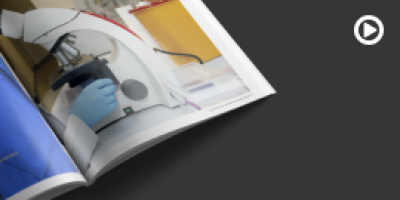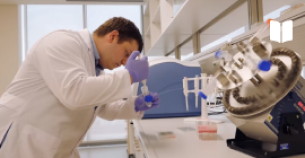Pharmacology
Pharmacology is a branch of science that involves the research and development of drugs as well as their use in patients. Pharmacology as a scientific discipline, involves the design and discovery of novel drugs, understanding and elucidating the molecular and cellular mechanisms. It examines the processes of drugs from the uptake into the organism to its passage from biological structures along with their distribution, transformation and excretion while making predictions on these processes with mathematical models. In addition, since the drugs usually mimic some endogenous substances at the targeted location they interact with these structures called "receptor"s and pharmacology investigates this structure-effect relationship of drugs with receptors. Besides, it investigates the information transmission mechanisms and signalling pathways in the biological compartments, the interaction of the drugs with each other and nutrients, the variation of drug response and metabolism between the individuals, the side effects and toxicity of the drugs. In short, it examines the effects of the drug or an endogenous molecule in the body on biological systems or molecular targets, and the effects of biological systems on drugs. The goal is to use all these elucidated information formed on controlled experiments, in the direction of diagnosing, preventing and identifying and creating therapeutic solutions for treatment purposes. Pharmacology is a bridge between basic sciences and clinical disciplines, because it is engaged in all stages from performing scientific research in the preclinical drug development phase, to transferring it to the clinical studies as well as following-up the services regarding therapeutic purposes. In summary, pharmacology; is a 'drug science'.
In ancient times during its journey hand in hand with botany, pharmacology was named Ebers papyrus in Egypt while it was Ayurveda in India, then it evolved to "Materia Medica", the first equivalent of pharmacopoeia which are the main drug information sources today. In the Middle Ages, the concept of ‘’dose’’ was introduced for the first time while the modern pharmacology emerged only in early 19th century. On the other hand, rational therapeutic concepts and controlled clinical trials date back 60 years. In the Ottoman Empire; Pharmacy, Medicine and Veterinary schools taught about drugs, and with the establishment of the Republic of Turkey and University reforms, the pharmacology courses started in colleges. The Turkish Pharmacology Association was established in 1966.
Throughout the history and today, the drugs are a crucial part of many lives, affecting millions of people and living beings. Pharmacology is the science of drugs and is one of the core elements in the pharmacy faculty education. Our purpose in pharmacology education is to provide the individual pharmacy faculty students with a core theoretical knowledge of pharmacology and drug concept, pharmacokinetics, pharmacodynamics, drug interactions and especially general drug effects and toxicity. Every day a new disease emerges, and older medicines are replaced. Therefore, it is much more important for the students to learn the notion of the pharmacology discipline to be able to find future solutions, bring, and work together with the other disciplines including biomedical sciences, chemistry, physiology and pathology, molecular and cell biology, and immunology.
Areas of Study: The research interests of the department are in-vivo electrophysiology and pharmacological manipulations, animal models of epilepsy and Parkinson’s disease, behavioural studies, identifying novel therapeutic targets and drugs


